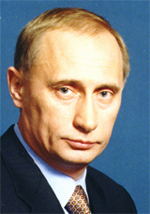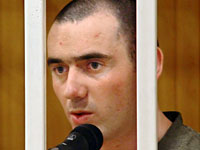The Beslan Trial and the Dangers of Government Secrecy 18 years, 9 months ago by Martey Dodoo
It has been almost a year since the fatal hostage situation in Beslan (see posts here and here). Only one of the hostage-takers, a young man named Nurpashi Kulayev, survived the storming of the school by Russian security forces. Both Slate and The Guardian are reporting on a suprisingly amount of sympathy given to him by the Beslan Mothers' Committee, a group whose children were killed at the end of the siege. They believe that if Kulayev was allowed to testify in court, some of the unanswered questions about the explosions that caused the end of the crisis might be answered. The Guardian:
'I'm afraid that he might have a sudden heart attack or fall down some stairs,' Dudiyeva told The Observer . 'Because if he tells the truth about what happened, it will be very inconvenient for some important people.' Dudiyeva has said that, if Kulayev told all he knew, she would ask for him to be pardoned. She and other relatives dismiss a parliamentary commission due to report in October as a sop.Some witnesses claimed that a sniper's bullet fired by a soldier outside the school sparked the bloodbath which ended the 53-hour siege, with hundreds of hostages killed by explosions and gunfire.


The Committee recently wrote to the prosecution asking that Nikolai Patrushev, head of the FSB (the successor agency to the KGB) and Interior Minister Rashid Nurgaliyev be tried for negligence. Some of the mothers seem to have become radicalized to the point of suggesting that President Putin himself be prosecuted. All of these three prosecutions, of course, are unlikely to occur.
While I do not think this suggests that the Beslan Mothers' sympathy toward Kulayev is symptomatic of a larger trend of Russian feelings of empathy with the hardship that Chechnya has encountered during the last 6 years of intermittent warfare and terrorist attacks, it does say something about the secretive nature of the Russian government. Here in the United States, despite recent trends to the contrary, the general principle is for the government to remain as open as possible. This transparency is even indoctrinated into law, through the Freedom of Information Act.
In Russia, the lack of a history of democratic governance has led to a tradition of secrecy. This easily leads to abuse, as seen in this Washington Post article about the intimidation of Russian citizens trying to get information on relatives who were abducted by Russian security forces in Chechnya. One of the cases involves Adam Medov, a taxi driver. When local police in Ingushetia (a Russian province that borders Chechnya) found him and another man in the trunks of cars driven by 6 men who claimed to be FSB agents, they detained the entire group.
But the six men and their prisoners were all ordered released by the acting Ingush interior minister, Abukar Kostoyev, according to an account of the incident written by the Russian general prosecutor's office. They got back into their cars and drove into Chechnya.On June 21, the Medov family was informed by letter by a deputy prosecutor in Ingushetia that Medov was detained by "officers of the FSB Department for Chechnya under the command of Lt. Col. Beletskiy V.V."
But on July 7, the head of the FSB in Chechnya wrote to say that Medov had not been detained by his officers and that his department had no knowledge of his whereabouts. The agency also said it had no officer named Beletskiy.
After Medov's wife petitioned the European Court of Human Rights, she was contacted by several officials claiming to be from the FSB and offering her money to withdraw her protest. Otherwise, she would be killed.